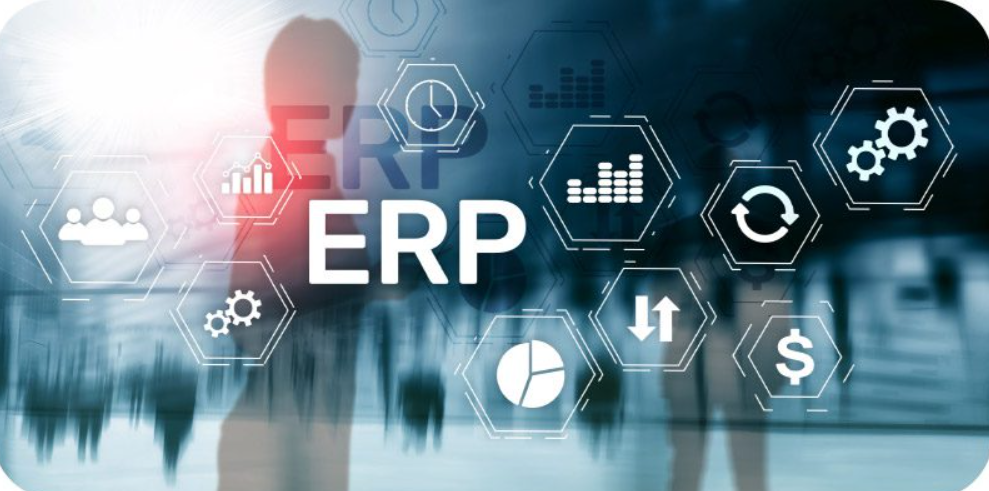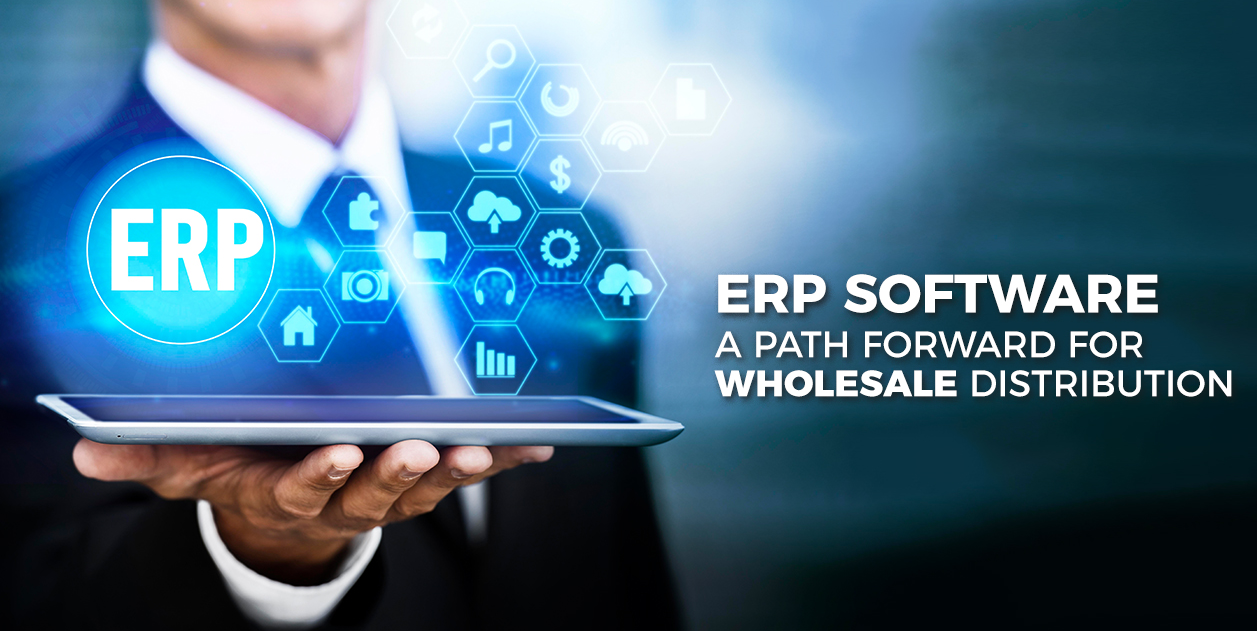The wholesale distribution industry has undergone significant transformations in recent years, driven by technological advancements, changing consumer expectations, and global economic shifts. In this dynamic environment, wholesale distributors are increasingly turning to specialized software and Enterprise Resource Planning (ERP) solutions to streamline operations, enhance efficiency, and maintain competitiveness. These sophisticated systems integrate various business processes, from inventory management and order fulfillment to financial reporting and customer relationship management, providing a holistic approach to distribution operations.
As we delve into the world of wholesale distribution software and ERP solutions, it’s crucial to understand how these tools are reshaping the industry and why they have become indispensable for modern distributors. This article explores the key features, benefits, and considerations for implementing these solutions, as well as the latest trends shaping their evolution.
Key Features of Wholesale Distribution Software
Wholesale distribution software is designed to address the unique challenges faced by distributors. The following features are typically central to these solutions:
- Inventory Management: Advanced inventory tracking and forecasting capabilities, including multi-location management, lot tracking, and automated reordering.
- Order Management: Streamlined order processing, from quote generation to order fulfillment and invoicing.
- Warehouse Management: Tools for optimizing warehouse operations, including pick, pack, and ship processes, as well as barcode scanning and RFID integration.
- Procurement: Supplier management, purchase order creation, and receiving functionalities.
- Sales and Customer Relationship Management (CRM): Customer data management, sales pipeline tracking, and communication tools.
- Financial Management: Integrated accounting functions, including accounts receivable, accounts payable, and general ledger.
- Reporting and Analytics: Real-time data analysis and customizable reporting capabilities to support informed decision-making.
- E-commerce Integration: Seamless connection with online sales channels and marketplaces.
These features work in concert to provide a comprehensive solution that addresses the end-to-end needs of wholesale distributors, from supply chain management to customer service and financial oversight.
The Role of ERP in Wholesale Distribution

Enterprise Resource Planning (ERP) systems take the concept of wholesale distribution software a step further by integrating all aspects of a business into a single, cohesive platform. For wholesale distributors, ERP solutions offer several key advantages:
- Unified Data Management: ERP systems provide a single source of truth for all business data, eliminating silos and reducing data inconsistencies.
- Process Automation: By automating routine tasks and workflows, ERP solutions can significantly improve operational efficiency and reduce manual errors.
- Enhanced Visibility: Real-time access to data across all business functions allows for better decision-making and more agile responses to market changes.
- Scalability: ERP systems are designed to grow with the business, accommodating increased transaction volumes and new business units as the company expands.
- Compliance and Risk Management: Built-in features for regulatory compliance and risk mitigation help distributors navigate complex legal and industry requirements.
- Customer Service Improvement: By providing a 360-degree view of customer interactions and preferences, ERP systems enable more personalized and efficient customer service.
The integration of these capabilities within a single system allows wholesale distributors to optimize their operations holistically, rather than addressing individual functions in isolation.
Benefits of Implementing Wholesale Distribution Software and ERP Solutions
The adoption of specialized software and ERP solutions can yield significant benefits for wholesale distributors:
- Increased Operational Efficiency: By automating processes and providing real-time data access, these systems can dramatically reduce the time and resources required for day-to-day operations.
- Improved Inventory Management: Advanced forecasting and tracking capabilities help optimize inventory levels, reducing carrying costs while ensuring product availability.
- Enhanced Customer Satisfaction: Faster order processing, accurate inventory information, and personalized service contribute to improved customer experiences.
- Better Decision-Making: Access to real-time, comprehensive data enables more informed strategic and operational decisions.
- Cost Reduction: Streamlined processes, reduced errors, and optimized resource allocation can lead to significant cost savings.
- Competitive Advantage: The agility and efficiency gained through these systems can help distributors respond more quickly to market changes and customer needs.
- Scalability and Growth Support: These solutions provide the infrastructure needed to support business growth and expansion into new markets or product lines.
By leveraging these benefits, wholesale distributors can position themselves for success in an increasingly competitive and fast-paced market environment.
Challenges and Considerations in Implementation
While the benefits of wholesale distribution software and ERP solutions are significant, their implementation can present challenges:
- Cost: The initial investment in software, hardware, and implementation services can be substantial, requiring careful budgeting and ROI analysis.
- Complexity: ERP systems, in particular, can be complex to implement and may require significant changes to existing business processes.
- User Adoption: Resistance to change and the learning curve associated with new systems can impact user adoption and overall success.
- Data Migration: Transferring data from legacy systems to new platforms can be time-consuming and fraught with potential issues.
- Customization vs. Standardization: Balancing the need for customized functionality with the benefits of standardized processes can be challenging.
- Integration with Existing Systems: Ensuring seamless integration with any retained legacy systems or third-party applications is crucial for smooth operations.
To address these challenges, distributors should:
- Conduct thorough needs assessments and vendor evaluations before selecting a solution.
- Develop a comprehensive implementation plan that includes change management strategies.
- Invest in user training and support to ensure smooth adoption.
- Work closely with vendors or implementation partners to address integration and customization needs.
By anticipating and planning for these challenges, distributors can increase the likelihood of a successful implementation and faster realization of benefits.
Emerging Trends in Wholesale Distribution Software
The landscape of wholesale distribution software and ERP solutions continues to evolve, driven by technological advancements and changing market demands. Key trends shaping the future of these solutions include:
- Cloud-Based Solutions: The shift towards cloud-based software offers greater flexibility, scalability, and accessibility for distributors of all sizes.
- Artificial Intelligence and Machine Learning: AI-powered features are enhancing forecasting accuracy, automating complex decisions, and providing deeper insights into business operations.
- Internet of Things (IoT) Integration: IoT devices are enabling real-time tracking of inventory and assets, improving supply chain visibility and efficiency.
- Mobile Accessibility: Mobile apps and responsive design are becoming standard, allowing for on-the-go access to critical business information.
- Advanced Analytics and Business Intelligence: Sophisticated analytics tools are providing distributors with deeper insights into market trends, customer behavior, and operational performance.
- Blockchain Technology: Some solutions are beginning to incorporate blockchain for enhanced supply chain transparency and security.
- Sustainability Features: Growing environmental concerns are driving the inclusion of features to support sustainable practices and reporting.
As these trends continue to shape the industry, wholesale distributors should stay informed and consider how emerging technologies can be leveraged to enhance their operations and competitive positioning.
Conclusion: The Future of Wholesale Distribution Technology
As the wholesale distribution industry continues to evolve, the role of specialized software and ERP solutions in driving efficiency, innovation, and competitive advantage will only grow. These technologies are no longer just tools for managing transactions and inventory; they are becoming central to strategic decision-making, customer engagement, and business growth.
The future of wholesale distribution technology lies in increasingly intelligent, integrated, and adaptable solutions that can help distributors navigate the complexities of global supply chains, changing consumer expectations, and emerging market opportunities. As artificial intelligence, machine learning, and other advanced technologies become more prevalent, distributors will have access to even more powerful tools for optimization and innovation.
However, the key to success will not just be in adopting these technologies, but in effectively integrating them into business strategies and operations. Distributors must approach technology implementation with a clear understanding of their business objectives, a commitment to change management, and a willingness to continuously evolve their processes and capabilities.
By embracing the potential of wholesale distribution software and ERP solutions, distributors can position themselves to thrive in an increasingly digital and competitive marketplace, driving efficiency, enhancing customer satisfaction, and unlocking new opportunities for growth and innovation.

